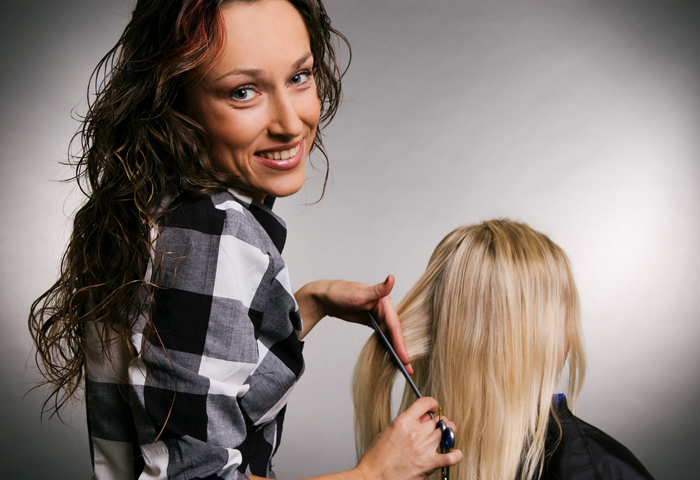
Most beauty schools will touch on how to make clients comfortable. However, that can often develop into a feeling of closeness that will see secrets being shared and advice being sought. This is where psy-cosmetology training comes into play; it’s all about top-notch people skills.
Lewis E. Losoncy developed the concept in the book “Salon Psychology: How to Succeed With People and Be a Positive Person” (Goodreads). Later Raylong Corporation monetized the idea in seminars that help cosmetologists develop the self-esteem necessary to make their clients feel comfortable and confident.
Once a client decides on a stylist, that client will, on average, stay with the stylist for seven years.
Therefore, for stylists, there is a great benefit — not only in the ability to retain clients but also to attract them — to learning great people skills. Leaders in the psy-cosmetology field rightly say that a huge part of the client/stylist relationship is how well they get along. For example, a client will not stay with a beauty professional if they are not comfortable.
So even if you can execute the latest styles flawlessly, if you aren’t friendly and personable, you won’t attract or retain clients as well.
Related: Personality Traits and Qualities of a Good Nail Tech
If the skills and tricks you learn from the above book or the seminars you attend seem a little forced, that’s ok. As is said, “fake it ’til you make it.” By seeing the positive effect that even attempting to be a warmer, friendlier person can bring, you will eventually become someone people look forward to their appointment with — if you aren’t already.
In the end, that’s what it is all about in any profession. If you are working to get money, you will always be less happy and prosperous than if you are working to help others. Some of the most miserable people on earth are the richest. Look at Howard Hughes; he had more money than he knew what to do with, but he developed some pretty severe neurosis.
On the other hand, some of the happiest people are the poorest. Witness people in third world countries with cramped living conditions and living hand to mouth, but with a lot more friends than lonely office workers in North America.
All of the beauty professions like esthetics, barbering, makeup, nail care, and so on can be considered to be helping professions. They help people to feel better about themselves by enhancing their appearance. Developing a friendly relationship with clients helps them even more!
To be happy, help others be happy.
